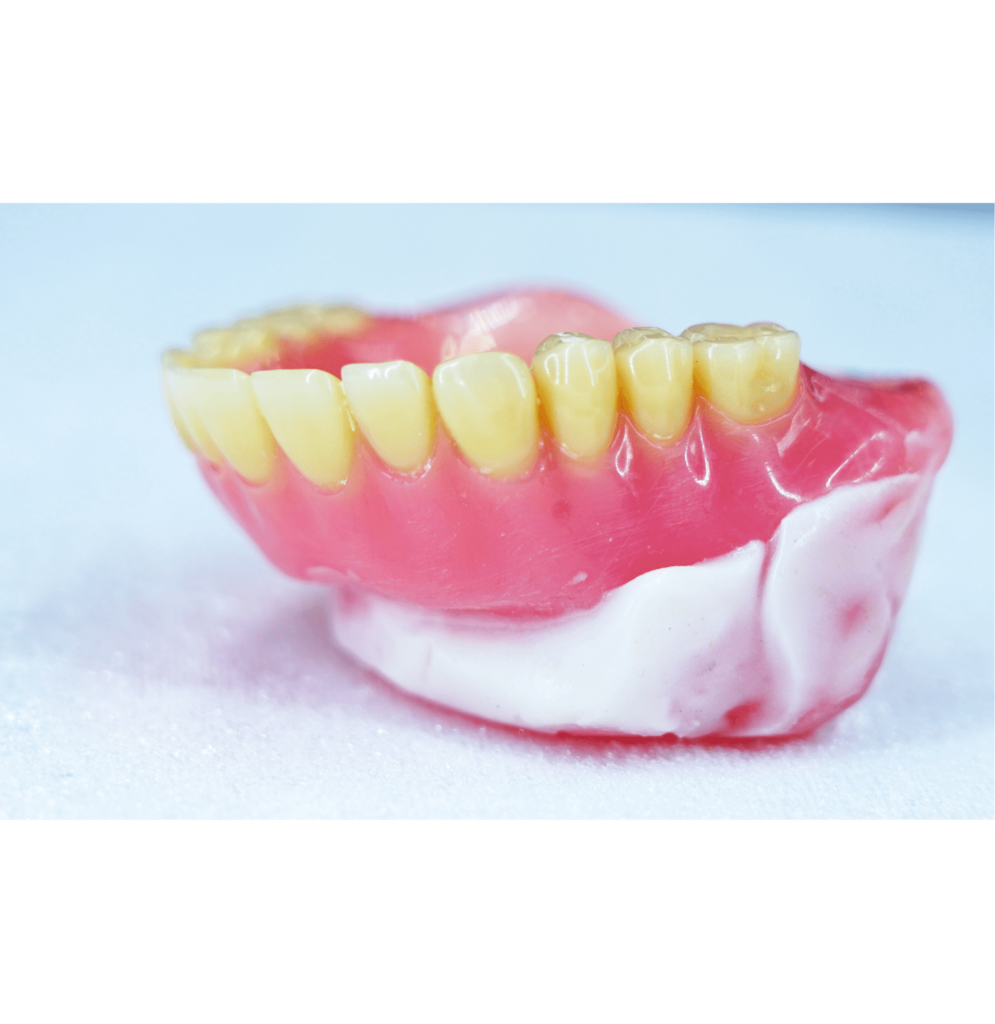What is a Dental Stay Plate?
A dental stay plate in dentistry is a removable dental appliance used to replace missing teeth. They provide a cost-effective option for restoring dental function and aesthetics. It offers patients a removable and customizable solution for addressing tooth loss.
The dental plates are designed to match the appearance of natural teeth. The framework attaches to existing teeth or dental implants using clasps or other retention mechanisms. While upper dental stay plates typically cover the palate for stability, lower stay plates fit along the gum line to seamlessly blend with remaining natural teeth.
Upper Stayplate vs Lower Stayplate
Here’s a comparison of upper stay plates and lower stay plates:
| Aspect | Upper Stay Plate | Lower Stay Plate |
| Location | Upper-stay dental plates are designed for the upper jaws | Lower-stay dental plates are designed for the lower jaws |
| Facial Support | Provides support to facial muscles and maintains facial structure | Supports facial muscles and prevents sagging |
| Stability | Provides support for the artificial teeth and palate | Offers stability along the gum line and adjacent teeth |
| Comfort | It may take time to adjust to the feeling of covering the palate | Generally comfortable, with fewer adjustments needed |
What Material Dental Plates Are Made of?
Acrylic Resin:
This is the most widely used material for making dentures. It’s durable, relatively inexpensive, and can be easily adjusted to fit comfortably in the mouth. Acrylic resin can also be color-matched to the natural gums for a more realistic appearance.
Porcelain:
Porcelain dentures are known for their natural appearance and durability. They closely resemble natural teeth and are stain-resistant which makes them a popular choice for many patients. However, they can be more expensive than acrylic dentures.
Metal Alloys:
Some dental plates incorporate metal alloys such as cobalt-chromium or titanium, for added strength and stability. These metal bases provide extra support for the denture and are often used in combination with other materials like acrylic or porcelain.
How Does Plate for Missing Teeth Work?
Once dental plates for missing teeth are fitted and adjusted, they restore both function and aesthetics. Both upper or lower jaw dentures function similarly to natural teeth.
Plates restore chewing ability, speech clarity, and facial aesthetics, by filling in the spaces left by missing teeth. Their design aims to seamlessly integrate with remaining natural teeth and surrounding oral structures which provides a comfortable and functional solution for those with partial tooth loss.
What are the Benefits of a Dental Stay Plate?
- Missing teeth can contribute to bone loss in the jaw, which may lead to further dental complications.
- Stay plates provide support to the surrounding bone structure. It also helps to prevent bone resorption and maintains overall oral health.
- Stay plates are custom-made to fit the unique contours of each individual’s mouth to ensure comfort. This personalized approach contributes to better patient satisfaction and long-term wearability.
- Dental stay plates do not require surgical procedures or invasive treatments.
- These dental mouth plates are removable which allows for easy cleaning and maintenance.

Stayplate vs Partial Denture?
| Feature | Stayplate | Partial Dentures |
| Purpose | Temporary tooth replacement | Permanent tooth replacement |
| Stability | Less stable due to limited retention | More stable due to clasps or attachments |
| Cost | Generally lower cost | Typically higher costs due to customization and materials |
| Longevity | Short-term solution | Can last several years with proper care |

